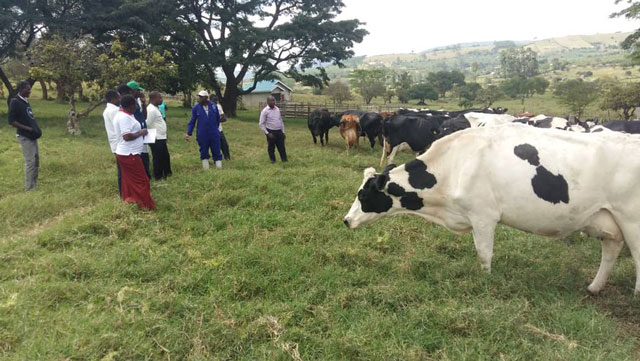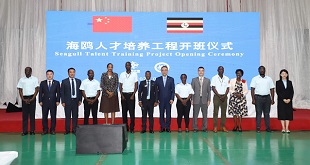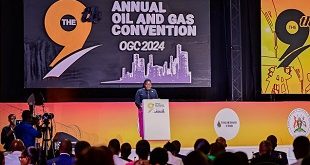
Mbale, Uganda | THE INDEPENDENT | Uganda is expected to continue having unpredictable rain and dry seasons, scientists have concluded, after projecting an increase in temperatures of about 2 degrees Celsius over the next 30 years in Kenya, Tanzania and Uganda.
These climate changes will have a significant impact on the agricultural sector in the region, which is predominantly rain-fed, scientists have warned.
Scientists from CGIAR’s Climate Change Agriculture and Food Security Programme have shared their recent findings on the situation in Uganda, Kenya and Tanzania with stakeholders at various workshops in April and May.
SNV in partnership with Wageningen University and Research, CGIAR’s Climate Change Agriculture and Food Security Programme, Agriterra and Rabo Partnerships published a series of climate risk assessment reports from the research that projected an increase in temperatures of about 2 degrees Celsius by 2050 in East Africa.
A series of risk assessment reports, as part of the Climate Resilient Agri-businesses For Tomorrow (CRAFT) project that is funded by the Netherlands Ministry of Foreign Affairs, showed stakeholders that more than ever before, farmers will have to adjust their farming practices, to meet the growing demand for food from populations predicted to double from what they are today.
The projections also show an overall increase in rainfall during the short rainy season (October, November and December) particularly in Kenya and Uganda and longer dry spells coupled with a decline in rainfall during the long rainy season (March, April, May). This could lead to higher incidences of flooding during the short rainy season and drought during the long rainy season.
Stakeholders plan how to adapt
The assessments aim to promotes climate-smart policies, practices, and services that enable agriculture to meet the triple goals of food security, climate change adaptation, and mitigation.
As Susan Cantella, the CRAFT project manager stated, “We cannot continue simply talking about climate change. We have to give it the much needed hands and feet to enable farmers and businesses to adapt to or mitigate the effects of climate change.”

(click to see full report – SESAME)
(click to see full reports- SOYABEAN)
Following the assessments, SNV and its partners held a series of workshops to increase awareness about how climate change impacts actors in the various value chains (sunflower and common bean in Tanzania; potato and green gram in Kenya; and soybean and sesame in Uganda).
The workshops aimed to increase awareness on the effectiveness of current coping strategies to deal with climate change now and in future; Identify new adaption strategies that will help actors to cope with climate risks in future and explore adaption measures and business opportunities.
Across the diverse group of stakeholders present, from government, private sector (e.g. input companies/ agro-dealers, processors), financial institutions, cooperatives as well as farmers, discussions on mutual engagement started to emerge.
It was also observed that climate smart agriculture can no longer be seen as just a technology or agricultural practices, it has to be anchored in a mutually inclusive arrangement with different stakeholders working together to drive the much-needed change.
“What was clear to all participants was the need to develop long term solutions because climate smart solutions addressing the issues of today will likely be overtaken by changes in climate in the future,” an SNV report on the stakeholders meetings said.
Recommendations
“We have to look very critically at how we produce food. Which foods can we produce where and how? Ultimately this is not just about improving food production. We have to look at the entire value chain, linkages to markets, and input suppliers, and how farmers will access finances,” said Sanne Willems – First Secretary Agriculture, Food Security and Water of the Embassy of the Kingdom of the Netherlands in Kenya, during one of the workshops.
During the climate risk assessment workshops, farmers identified their need for timely information and knowledge to help adjust their farming practices – for instance how to access quality certified seeds, soil testing before selecting fertilisers as well as the challenges in accessing finances and markets .
For the agri-businesses (processors, input and service providers) the challenges highlighted by farmers was a clear reflection of the need to invest in climate smart solutions as a way to climate proof their supply chains. The participating financial institutions realised that there is a need to develop customised/ tailored products for farmers including how to make agricultural insurance accessible and affordable to farmers.
******
SOURCE: SNV
 The Independent Uganda: You get the Truth we Pay the Price
The Independent Uganda: You get the Truth we Pay the Price


